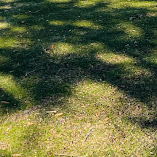Herbert Quick’s 1922 novel, Vandemark’s Folly, is the first-person story of very young Jacob Vandemark’s trek from New York State to Iowa in the 1850s. Jake is an American by birth, born of Dutch parents in New York. One of the central crises occurs when he finally comes to the forty-acre plot that is to be his, only to discover that it is considered the poorest piece of potential farm land in that part of Iowa. “Hell’s Slew,” the locals call it. Soon it will be known as “Vandemark’s Folly.”
At the end of his long and arduous journey, Jake is overwhelmed by the shock of his profound disappointment at where it has brought him, and he “crie(s) like a baby.” He feels a large hand on his head, looks up, and sees the man who will be farming the land next to his. Immigrant Magnus Thorkelson comforts him with, “Forty acres bane pretty big farm in Norvay. My fadder on twenty acres, raise ten shildren. Not so gude land like dis.” Magnus offers to live and work with Jake, and he accepts the offer.
Here is how Jake concludes this chapter of his story:
A lot is said nowadays about the Americanization of the foreigner; but the only thing that will do the thing is to work with the foreigner, as I worked with Magnus—let him help me, and be active in helping him. The Americanization motto is, “Look upon the foreigner as an equal. Help him. Let him help you. Make each other’s problems mutual problems—and then he is no longer a foreigner.” When Magnus Thorkelson came back on foot across the prairie from Monterey Centre, to lay his hand on the head of that weeping boy alone on the prairie, and to offer to live with him and help him, his English was good enough for me, and to me he was as fully naturalized as if all the judges in the world had made him lift his hand while he swore to support the Constitution of the United States and of the State of Iowa. He was a good enough American for Jacobus Teunis Vandemark.
Might we make progress in resolving our persistent immigration challenges if we approached them with the openness Jacob Vandemark and Magnus Thorkelson showed to one other?
By the way, if you’d like to know more about Herbert Quick (1861-1925), there is quite a bit available on line. I posted an essay about him on this blog on February 13, 2014. I know of him because he was born in Grundy County, Iowa, where I grew up.


